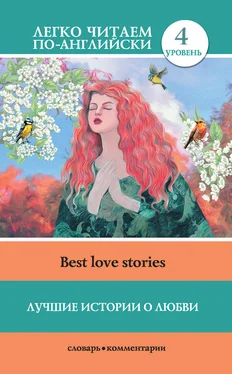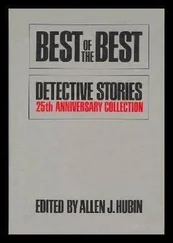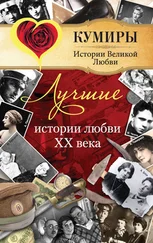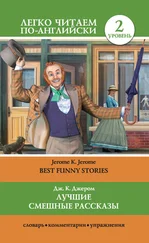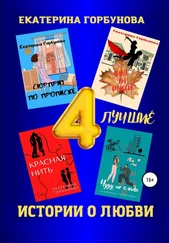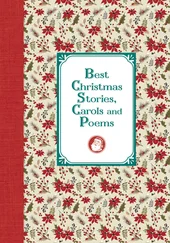1 ...8 9 10 12 13 14 ...29 “It is Mrs. Narracombe, my aunt.”
Mrs. Narracombe had a quick, dark eye, like a mother wild-duck’s.
“We met your niece on the road,” said Ashurst; “she thought you might perhaps put us up for the night.”
Mrs. Narracombe, taking them in from head to heel, [65]answered:
“Well, I can, if you don’t mind one room. Megan, get the spare room ready, and a bowl of cream. You’ll be wanting tea, I suppose.”
Passing through a sort of porch made by two yew trees and some flowering-currant bushes, the girl disappeared into the house.
“Will you come into the parlour and rest your leg? You’ll be from college, perhaps?”
“We were, but we’ve left it now.”
The parlour, brick-floored, with bare table and shiny chairs and sofa stuffed with horsehair, seemed never to have been used, it was so terribly clean. Ashurst sat down at once on the sofa, holding his lame knee between his hands, and Mrs. Narracombe gazed at him. He was the only son of a late professor of chemistry, but people found a certain lordliness in him.
“Is there a stream where we could bathe?”
“There’s the stream at the bottom of the orchard, but sitting down you’ll not be covered!”
“How deep?”
“Well, it is about a foot and a half, maybe.”
“Oh! That’ll do fine. Which way?”
“Down the lane, through the second gate on the right, and the pool’s by the big apple tree that stands by itself. There’ll be the tea ready when you come back.”
The pool, formed by the damming of a rock, had a sandy bottom; and the big apple tree, lowest in the orchard, grew so close that its boughs almost overhung the water; it was about to flower – its crimson buds just bursting. There was not room for more than one at a time in that narrow bath, and Ashurst waited his turn, rubbing his knee and gazing at the wild meadow. Every bough was swinging in the wind, every spring bird calling, and sunlight dappled the grass. He thought of Theocritus, [66]and the river Cherwell, of the moon, and the maiden with the dewy eyes; of so many things that he seemed to think of nothing; and he felt absurdly happy.
During a late and sumptuous tea with eggs to it, cream and jam, and thin, fresh cakes, Garton descanted on the Celts. It was about the period of the Celtic awakening, and the discovery that there was Celtic blood about this family had excited one who believed that he was a Celt himself. Sprawling on a horse hair chair, with a hand-made cigarette in his lips, he had been staring at Ashurst and praising the refinement of the Welsh. To come out of Wales into England was like the change from china to earthenware! Frank, as an Englishman, had not of course perceived the exquisite refinement and emotional capacity of that Welsh girl! And, delicately stirring in the dark mat of his still wet hair, he explained how exactly that Welsh girl illustrated the writings of the Welsh bard Morgan-ap-Something in the twelfth century.
Ashurst, full length on the horsehair sofa, did not listen, thinking of the girl’s face when she brought in some cakes. It had been exactly like looking at a flower, or some other pretty sight in Nature – till, with a funny little shiver, she had lowered her glance and gone out, quiet as a mouse.
“Let’s go to the kitchen,” said Garton, “and see some more of her.”
The kitchen was a very clean room; there were flower-pots on the window-sill, and guns hanging on nails, queer mugs, china, and portraits of Queen Victoria. A long, narrow wooden table was set with bowls and spoons, under a string of high-hung onions; two dogs and three cats lay here and there. On one side of the fireplace sat two small boys, idle, and good as gold; on the other sat a stout, light-eyed, red-faced young man with hair and lashes the colour of the tow he was running through the barrel of a gun; between them Mrs. Narracombe dreamily stirred some tasty-scented stew in a large pot. Two other young men, dark-haired, rather sly-faced, were talking together and leaning against the wall; and a short, elderly, clean-shaven man in corduroys, seated in the window, was reading a journal. The girl Megan seemed the only active creature – pouring cider [67]and passing with the jugs from cask to table. Seeing them thus about to eat, Garton said:
“Ah! If you’ll let us, we’ll come back when supper’s over,” and without waiting for an answer they withdrew again to the parlour.
“Regular gipsy type, those boys. There was only one Saxon – the fellow cleaning the gun. That girl is a very subtle study psychologically.”
Ashurst’s lips twitched. Garton seemed to him an ass just then. Subtle study! She was a wild flower. A creature it did you good to look at. Study!
Ashurst threw up the window and leaned out. Dusk had gathered thick. The farm buildings were all dim and bluish; the air smelled of woodsmoke from the kitchen fire. And away over there was the loom of the moor, and away and away the shy stars pricking white through the deep blue heavens. Ashurst drew a deep breath. What a night to wander out in! A bat went fluttering past, uttering its almost inaudible “chip, chip.” Ashurst held out his hand; on the upturned palm he could feel the dew. Suddenly from overhead he heard little boys’ voices, little thumps of boots thrown down, and another voice, clear and soft – the girl’s putting them to bed, no doubt; and nine words “No, Rick, you can’t have the cat in bed”; then came giggles and gurgles, a soft slap, a laugh so low and pretty that it made him shiver a little. Ashurst returned into the room and sat down; his knee pained him, and his soul felt gloomy.
“You go to the kitchen,” he said; “I’m going to bed.”
Though Ashurst seemed to be in a deep in sleep when his companion came up, he was really wide awake; and long after Carton was worshipping darkness with his upturned nose, he heard the owls. Barring the discomfort of his knee, it was not unpleasant for he had no cares of life; just enrolled a barrister, [68]with literary aspirations, the world before him, no father or mother, and four hundred a year of his own. Did it matter where he went, what he did, or when he did it? His bed, too, was hard, and this preserved him from fever. He lay, sniffing the scent of the night which drifted into the low room through the open window close to his head. Except for a definite irritation with his friend, natural when you have tramped with a man for three days, Ashurst’s memories and visions that sleepless night were kindly and wistful and exciting. One vision, specially clear and unreasonable, for he had not even been conscious of noting it, was the face of the young man cleaning the gun; its intent, stolid, yet startled uplook at the kitchen doorway, quickly shifted to the girl carrying the cider jug. This red, blue-eyed, light-lashed, tow-haired face stuck as firmly in his memory as the girl’s own face, so dewy and simple. But finally, in the square of darkness through the uncurtained window, he saw day coming, and heard one hoarse and sleepy caw. Then followed silence, dead as ever. And, from staring at the framed brightening light, Ashurst fell asleep.
Next day his knee was badly swollen; the walking tour was obviously over. Garton had to go back to London and departed at midday with an ironical smile which left a scar of irritation – healed the moment his figure vanished round the corner of the steep lane. All day Ashurst rested his knee, in a green-painted wooden chair on the grass by the yew-tree porch. Beatifically he smoked, dreamed, watched.
A farm in spring is all birth – young things coming out of bud and shell, and human beings watching over the process with faint excitement feeding and tending what has been born. Now and again Mrs. Narracombe or the girl Megan would come and ask Ashurst if he wanted anything, and he would smile and say: “Nothing, thanks. It’s splendid here.” Towards tea-time they came out together, bearing a long poultice of some dark stuff in a bowl, and after a long scrutiny of his swollen knee, bound it on. When they were gone, he thought of the girl’s soft “Oh!” – of her pitying eyes, and the little wrinkle in her brow. And again he felt that unreasoning irritation against his departed friend, who had talked such rot about her. When she brought out his tea, he said:
Читать дальше
Конец ознакомительного отрывка
Купить книгу
